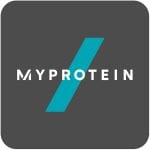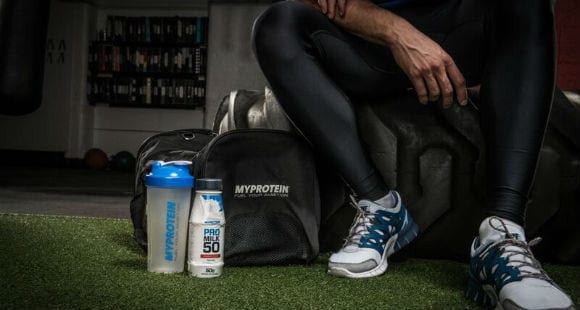
If you’ve done research into supplements, you would have heard of leucine by now, sometimes referred to as l-leucine. Leucine is one of the three branched-chain amino acids (BCAAs) and it is fast becoming the most popular form of amino acid supplementation on the market. They are essential amino acids, which means we need them, but can’t produce them - they must consumed via food or supplements. The BCAAs are very useful for recovery from training, and leucine may be the most important one.
What Does The 'L' Stand For In L-Leucine?
The 'L' stands for levo, which is latin for left. All amino acid supplements should be in the 'l' form as the they are more compatible with human biochemistry. This is because almost all amino acids in animal and plant tissue take this l-configuration as opposed to a 'D' configuration.

The Benefits of Leucine
When your body gets a high enough dose of leucine, it switches into anabolic mode, which is when you start building muscle. As it is one of the main triggers for muscle growth, it’s a very important supplement to understand and consider using with your nutrition protocols.
The other two BCAAs, iso-leucine and valine, can have a similar effect, although they are not as potent alone. Because of this, it’s very common to see them in smaller doses than leucine in mixed supplements. Leucine should always be the amino acid found in the highest quantity.
When taken throughout the day, after meals, leucine has been shown to increase muscle protein synthesis over the course of the day. More leucine makes it easier to grow and maintain muscle, so whether you’re on a diet or bulking phase, adding leucine to your diet would be very beneficial.
What Dosage Of Leucine Should I Take?
It’s important to understand what the leucine threshold is. Once your body gets enough leucine, usually 2.5-3 grams, it will switch into muscle building mode. However, more leucine does not give any greater benefit, so you only need a certain amount. This means if you have had a leucine-high protein dose within the last hour or two, supplementing with extra won’t be of much benefit.
As leucine is one of the essential amino acids, it is usually found in complete protein sources. Anytime you eat a meal high in protein, or a take a protein shake, you probably don’t need extra leucine. It’s best taken between meals, or added to meals that have little to no protein.
The easiest way to get your leucine is by using a well-rounded BCAA supplement. Look for one that has at least 2 grams of leucine per serving, if not more. It’s also sold by itself, but with a BCAA product, you get the benefit of having the other two amino acids, iso-leucine and valine, plus anything else that may be added. You can also purchase leucine by itself in powder or pill form.

When Should I Take Leucine?
The recommended dose for leucine is between 2-5 grams, taken fasted or with a low-protein meal. If your BCAA supplement has at least 2 grams of leucine, you’re good to go. It would be very useful to take post-workout, as it can accelerate muscle growth and recovery. However, even on non-training days, or during inactive periods of the day, it’s still helpful to supplement with leucine.
Take Home Message
If you are serious about your training and would like more efficient recovery between sessions then taking l-leucine in the form of a BCAA supplement is highly recommended. Faster recovery means you can train more often and with more intensity, resulting in bigger muscle growth or faster weight loss. The benefit of taking BCAA when you are losing weight is that it helps to maintain muscle mass.
Our articles should be used for informational and educational purposes only and are not intended to be taken as medical advice. If you're concerned, consult a health professional before taking dietary supplements or introducing any major changes to your diet.









